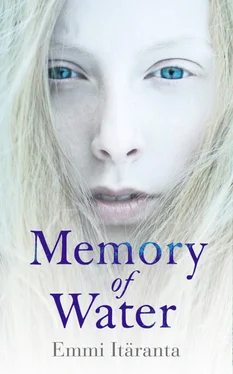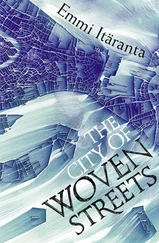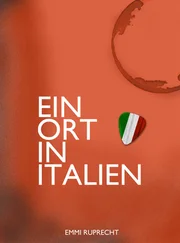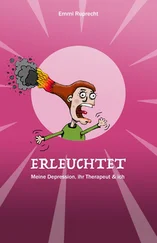Some things shouldn’t be seen. Some things don’t need to be said.
‘Have you applied for permission to repair the water pipe?’
Sanja gave a snort. ‘Do you think we have time to wait through the application process? I have almost all the spare parts that I need. I just haven’t figured out how to do it without the water guards noticing.’
She said it casually, as if talking about something trivial and commonplace, not a crime. I thought of the water guards, their unmoving faces behind their blue insect hoods, their evenly paced marching as they patrolled the narrow streets in pairs, checking people’s monthly use of their water quotas and carrying out punishments. I had heard of beatings and arrests and fines, and whispers of worse things circulated in the village, but I didn’t know if they were true. I thought of the weapons of the guards: long, shiny sabres that I had seen them cut metal with, when they were playing on the street with pieces of an illegal water pipe they had confiscated from an old lady’s house.
‘I brought you something to repair,’ I said and began to unfasten the straps from around my load of waterskins. ‘There’s no rush with these. How much will you charge?’
Sanja counted the skins by tracing her finger along the pile. ‘Half a day’s work. Three skinfuls.’
‘I’ll pay you four.’ I knew Jukara would have done the job for two, but I didn’t care.
‘For four I’ll repair one of these for you right away.’
‘I brought something else too.’ I took a thin book out of my bag. Sanja looked at it and made a little sound of excitement.
‘You’re the best!’ Then her expression went dark again. ‘Oh, but I haven’t finished the previous one yet.’
‘Doesn’t matter. I’ve read them many times.’
Reluctantly Sanja took the book, but I could see she was pleased. Like most families in the village, her family had no books. Pod-stories were cheaper and you could buy them at any market, unlike paper.
We carried the skins around the house into Sanja’s workshop, which she had built in the backyard. The roof was made of seagrass and three of the walls consisted of insect nets stretched between supporting wooden poles. The back wall of the house functioned as the fourth wall of the workshop. Sanja pulled the finely-woven wire mesh door closed behind us and latched it so the draught wouldn’t throw it open.
I placed the skins on the wooden planing bench in the middle. Sanja put the rest on top of them and took one to the long table by the solid wall. My father had marked the cut with beetroot colour; it was the shape of an uneven star on the surface of the skin.
Sanja lit the solar burner and its wires began to glow orange-red. She took a box with pieces of patching plastic from under the table and picked one. I watched as she took turns to carefully heat the waterskin and the patch until both surfaces had grown soft and sticky. She fitted the plastic on top of the crack and after making sure that it covered the cut in the skin she began to even the seam out to make it tight.
While I waited, I looked around in the workshop. Sanja had brought in more junk plastic since my last visit a couple of weeks ago. As always, the long tables were filled with tools, brushes, paint jars, wooden racks, empty blaze lanterns and other bits and pieces I didn’t even recognise. Yet most of the space was taken up by wooden boxes spilling over with junk plastic and metal. Metal was more difficult to find, because the most useful parts had been taken to cities for the army to melt down decades ago, and after this people had gathered most of what they could put to good use from metal graves. All you could dig up these days in those places were useless random pieces that had nothing to do with each other.
Junk plastic, on the other hand, never seemed to run out, because past-world plastic took centuries to degrade, unlike ours. A lot of it was so poor in quality or so badly damaged that it couldn’t be moulded into anything useful, but sometimes, if you dug deeper, you could come across treasures. The best finds were parts of the broken technology of the past-world, metal and plastic intertwined and designed to do things that nothing in our present-world did anymore. Occasionally a piece of abandoned machinery could still be fairly intact or easily repaired, and it puzzled us why it had been thrown away in the first place.
In one of the boxes under the table I found broken plastic dishes: mugs, plates, a water jug. Under them there were two black plastic rectangles about the size and shape of the books I had in my room at home, a few centimetres thick. They were smooth on one side, but on the reverse side there were two white, round wheel-like holes with cogs. One of the edges on one of the rectangles was loose and a shredded length of a dark, shiny-smooth tape had unravelled from the inside. There was small print embossed on the plastic. Most of it was illegible, but I could make out three letters: VHS.
‘What are these?’ I asked.
Sanja had finished smoothing the seam and turned to look.
‘No idea,’ she said. ‘I dug them up last week. I think they’re changeable parts to some past-tech machine, but I can’t think of what they were used for.’
She placed the skin on a rack. It would take a while for the plastic to seal completely. She picked up a large rucksack from the table and lifted it on her back.
‘Do you want to go scavenging while the skin cools down?’ she asked.
When we had walked a few blocks, I was going to turn to the road we usually took to the plastic grave. But Sanja stopped and said, ‘Let’s not go that way.’
The mark caught my attention at once. There was a wooden house by the road. Its faded, chipped paint had once been yellow, and one of the solar panels on the roof was missing a corner. The building was no different from most other houses in the village: constructed in the past-world era and converted later for the present-world circumstances. Yet now it stood out among the washed-out, colourless walls and faded yards, because it was the only house on the street that had fresh paint on its door. A bright blue circle was painted on the worn wooden surface, so shiny it still looked wet. I hadn’t seen one before.
‘What’s that?’ I asked.
‘Let’s not talk here,’ Sanja said, pulling me away. I saw a neighbour step out of the house next door. He avoided looking at the marked house and accelerated his steps when he had to walk past it. Apart from him, the street was deserted.
I followed Sanja to a circuitous route. She glanced around, and when there was no one in sight, she whispered, ‘The house is being watched. The circle appeared on the door last week. It’s the sign of a serious water crime.’
‘How do you know?’
‘My mother told me. The baker’s wife stopped at the gate of the house one day, and two water guards appeared out of the blue to ask what her business was. They said the people living in the house were water criminals. They only let her go after she convinced them that she had only stopped by to sell sunflower seed cakes.’
I knew who lived in the house. A childless couple with their elderly parents. I had a hard time imagining they were guilty of a water crime.
‘What has happened to the residents?’ I asked. I thought of their ordinary, worn faces and their modest garments.
‘Nobody knows for sure if they’re still inside or if they’ve been taken away,’ Sanja replied.
‘What do you think they’re going to do with them?’
Sanja looked at me and shrugged and was quiet. I remembered what she had said about building an illegal water pipe. I glanced behind me. The house and the street had disappeared from sight, but the blue circle was still flashing in front of my eyes: a sore tattoo on the skin of the village, too inflamed to approach safely, and covered with silence.
Читать дальше
Конец ознакомительного отрывка
Купить книгу












